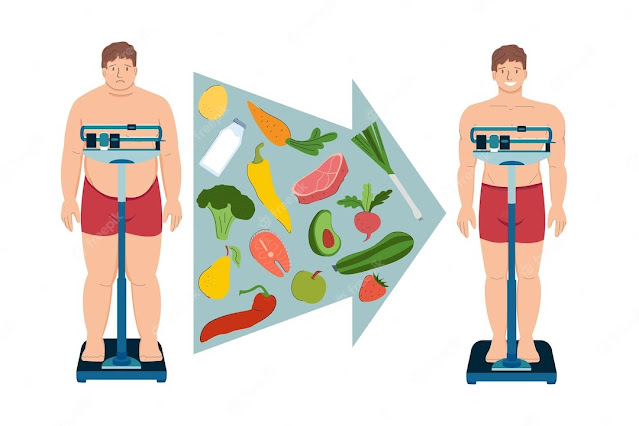How to Reduce Body Fat
How to Reduce Body Fat
Create a Calorie
Deficit:
The foundation of fat loss is creating a calorie deficit,
which means consuming fewer calories than your body needs to maintain its
current weight. This can be achieved by reducing portion sizes, making
healthier food choices, and being mindful of your overall calorie intake. Keep
in mind that it's important to strike a balance and avoid extreme calorie
restrictions, as they can negatively impact your metabolism and overall health.
Prioritize Protein:
Including an adequate amount of protein in your diet is
essential for reducing body fat. Protein boosts metabolism, increases feelings
of fullness, and helps preserve lean muscle mass. Incorporate lean sources of
protein such as chicken, fish, tofu, legumes, and Greek yogurt into your meals
and snacks. Aim for approximately 20-30 grams of protein per meal to support
your fat loss goals.
Opt for Whole Foods:
Whole foods are minimally processed and offer a wide range
of nutrients, making them an excellent choice for reducing body fat. Fill your
plate with fruits, vegetables, whole grains, lean proteins, and healthy fats.
These foods are typically low in calories, high in fiber, and provide essential
vitamins and minerals that support overall health. Avoid or limit processed and
sugary foods, as they are often high in calories and offer little nutritional
value.
Engage in Strength
Training:
Incorporating strength training exercises into your fitness
routine is crucial for reducing body fat. Strength training builds lean muscle
mass, which increases your resting metabolic rate and enhances fat burning.
Include exercises like squats, lunges, deadlifts, and push-ups in your
workouts. Aim for at least two to three strength training sessions per week,
allowing for adequate rest and recovery between sessions.
Incorporate
High-Intensity Interval Training:
HIIT workouts are a time-efficient and effective way to
reduce body fat. This form of exercise involves alternating between intense
bursts of activity and short recovery periods. HIIT workouts can be performed
with various exercises such as sprints, cycling, or bodyweight movements. These
workouts increase your heart rate, burn calories, and enhance fat oxidation.
Start with two to three HIIT sessions per week and gradually increase the
intensity as your fitness improves.
Prioritize Sleep and
Stress Management:
Adequate sleep and effective stress management are often
overlooked factors in successful fat loss. Lack of sleep and chronic stress can
disrupt hormonal balance, leading to increased appetite, cravings, and weight
gain. Aim for 7-9 hours of quality sleep each night and incorporate
stress-reduction techniques such as meditation, yoga, or deep breathing
exercises into your daily routine.
Stay Hydrated:
Drinking enough water is essential for overall health and
can aid in reducing body fat. Water helps to regulate appetite, boosts
metabolism, and supports proper digestion. Aim to drink at least eight glasses
of water per day and increase your intake during periods of physical activity
or hot weather. Avoid sugary drinks, as they contribute unnecessary calories.
Be Consistent and
Patient:
Lastly, consistency and patience are key when it comes to
reducing body fat. Remember that sustainable fat loss takes time and effort.
Stay committed to your healthy eating habits, exercise routine, and lifestyle
changes. Celebrate small victories along the way and focus on long-term
progress rather than quick fixes.
By implementing these eight strategies into your lifestyle,
you can take meaningful steps towards reducing body fat and achieving your
weight loss goals. Remember to consult with a healthcare professional before
making any significant dietary or exercise changes. With dedication and
perseverance, you can create a healthier and more balanced body.
Thanks
Shariq Khan




Comments
Post a Comment